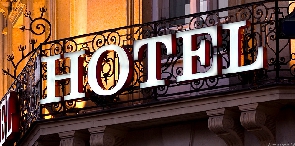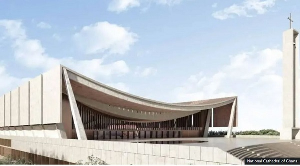The Ghana Hotels Association (GHA) has bemoaned the recent hikes in utility tariffs, taxes, and levies, saying “they are incredibly crippling the hospitality industry”.
The hospitality industry already suffered tremendous losses from the COVID-19 pandemic, and instead of helping to rebound faster, the Government had rather slapped it with hefty taxes, particularly property rates, which had deepened its woes, the association said.
Mr Isaac Nkoom, the immediate past Central Regional Chairman of the GHA, said the property rate regime currently being implemented by the Ghana Revenue Authority had become a “killer to the sector’s rebound”.
“How could a facility that pays a property rate of GH¢700 suddenly rise to GH¢20,000 or from GH¢1,800 to GH¢50,000? We are not against the increase and the collection by GRA, but we are against the astronomical increases killing our businesses,” he said.
“We do not know how they arrived at those sharp increases and, as far as we remain stakeholders, we expected some consultations on operational modalities before implementation.”
“This must certainly change for our mutual gain. The entire arrangement appears we are being punished for owing businesses because the rates do not reflect the reality of our business.”
Mr Nkoom was speaking at the Fourth National Executive Council Meeting of the GHA at the Elmina Beach Hotel on Friday, on the theme: “Sustaining the Hotel Industry in Ghana – Post-COVID-19 Pandemic”.
It brought together national and regional executives of the GHA and key stakeholders including metropolitan, municipal, and district assemblies, Ghana Tourism Authority, Ghana National Fire Service, and the Food and Drugs Authority to deliberate on issues affecting the industry and how best to address them.
Mr Nkoom said the challenges had also been exacerbated by 20 multiple and duplicate taxes and levies, which were “suffocating the growth of the sector.”
“These include the NHIL, VAT, GETfund, COVID-19 levy, GTA levy, EPA Levy, FDA levy, MMDAs levy, Fire Service levy, and one per cent tourism levy.”
“Others are SSNIT for staff, data protection levy, property rates, suitability report levy, and GHAMRO levy, which were all contributing to the pricing mechanisms.”
He expressed regret over the burden those taxes put on industry operators and said the GHA had no option but to honour all tax obligations, in addition to the cost of maintenance, utilities, and the payment of salaries.
He urged the Government to consider the reduction in VAT charges as the hotel business was gradually grinding to a halt due to very low patronage, because of the economic hardship.
For the payment of regulatory fees by the hotels, he requested the Government to reduce them to prevent the ramifications on job losses and business sustainability.
He called on hotel owners yet to register with the Association to do so to ensure teamwork as it charted a common course of regulating their activities to improve operations.
Mr Kwame Gyasi, the Central Regional Director of the Ghana Tourism Authority, advised hotel operators to invest more in customer service to grow the country’s tourism industry.
Although the country had over the years been touted as a very hospitable destination, often, many hotels had issues with customer service, he noted.
“So I want to urge management to take service delivery as critical and add value to the services rendered by organising a lot of training, do right recruitment and coordination with other agencies and institutions in the value-chain.”
“We share your pain, we understand your challenges and we are with you in these difficult moments as we work for the best solutions.”
Business News of Sunday, 22 October 2023
Source: GNA

















